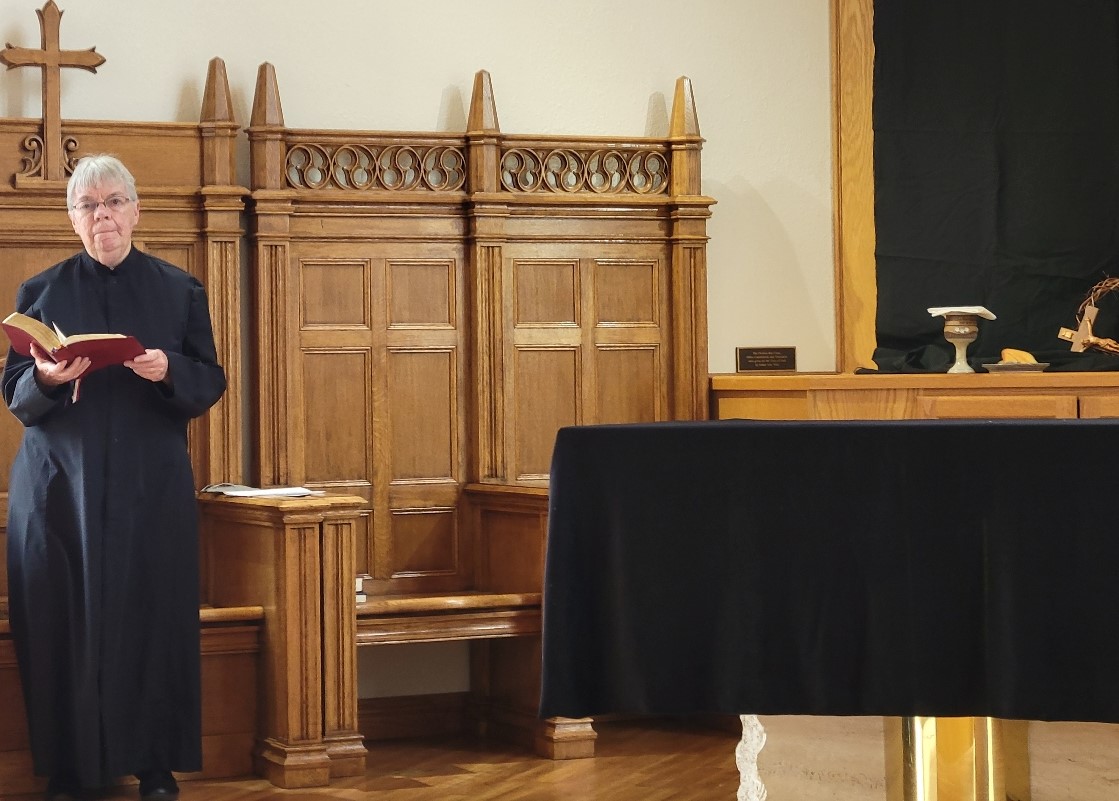Rev. Cathy Cox
Before there were systematic theologians, there were poets.
That’s what the Psalmists were – and the prophets
That’s what the gospel writers were too, – and that’s what Paul himself actually was.
When they recovered from the stunning events of Jesus’ death and resurrection, they tried to express what it had all meant:
What the cross signified – how an instrument of Roman execution had become, for them, the center of human history.
What Jesus’ death had meant – how an intinerant preacher, agitator, lover of sinners, tax collectors, outsiders and poor ordinary people who couldn’t really make much difference in their world had been murdered because his very presence threatened the precarious truce between Jews in Jerusalem and their uneasy Roman rulers.
But they didn’t come up with theories. That came a whole lot later. Instead, they piled up image on top of image – and so did the poets and preachers of the next several centuries.
Jesus’ death is sacrifice – but offered willingly, consciously, deliberately.
It is victory over sin and death for all humanity.
It is atonement.
Jesus was the paschal/passover lamb that was slain to receive power and wisdom and glory – as the author or Revelation sings.
His death was a ransom – evoking the image of the slave market: “You were bought with a price.” Paul says.
Jesus took us through the sea that promised death and defeat – like Moses – and brought us out to songs of triumph.
And the cross?
Clement of Alexandria in about 200 AD wrote: “Here in o’erwhelming final strife the Lord of life hath victory, And sin is slain, and death brings life, and earth inherits heaven’s key.”(hymn 163)
It becomes a throne – the place from which Jesus began his reign, even before the Resurrection
The cross becomes the flowering tree of life – whose roots sink down into the earth and which flowers into eternity.
It is the place of privilege: “O tree of beauty, tree most fair, ordained those holy limbs to bear; gone is thy shame, each crimsoned bough proclaims the king of glory now.” (hymn 162; 6th century)
And the crucifixion – that was supposed to end this pernicious preacher’s influence – well, it backfired
Remember the hymn we sang tonight: (170)
“To mock your reign, O dearest Lord, they made a crown of thorns, set you with taunts, along that road from which no one returns. They did not know, as we do now, that glorious is your crown; That thorns would flower upon your brow, your sorrows heal our own.”
And the Easter hymns practically thunder the same theme – again and again they say that everything that sin did to the world, everything that the Empire tried to do to crush Jesus and his movement, turned against them – became something else entirely –
Sin is defeated. Death is upended.
His death is the way to life
His broken body becomes our treasure – and our meal
His blood poured out becomes our drink
His shame becomes our glory – and his.
(174) – a 17th century hymn
“At the Lamb’s high feast we sing, praise to our victorious King. Who hath washed us in the tide, flowing from his pierced side,”
(Do you hear the Exodus imagery there?! )
“Praise we him whose love divine, gives his sacred Blood for wine, gives his Body for the feast, Christ the victim, Christ the priest.”
Where the Paschal blood is poured, death’s dark angel sheathes his sword. Israel’s hosts triumphant go, through the wave that drowns the foe. Praise we Christ whose blood was shed, Paschal Victim, Paschal Bread; with sincerity and love, eat we manna from above.
Well, the examples are unending.
Jesus’ followers didn’t limit themselves to one way of speaking about the cross – or about Jesus’ death.
It was too big for them; and it is too great for us, too.
It isn’t a magical or logical or legal or transactional event.
It is wonder, and grace, and beauty, and grief – and God with us in suffering, transforming it.
And it still is – even now, Ukrainian Christians are preparing to remember Christ’s death in the midst of their own – And they are not recalling it with despair either – but with confidence and hope.
Jesus died for us.
That’s all I know. That’s what we sing.
We are better off to pile image on image – to fall on our knees, or on our faces – to weep and dance and rejoice and paint and write music
But we had better not try to explain the truth that in the cross, God did something that can never, and never needs to be repeated – for the whole world.

No responses yet